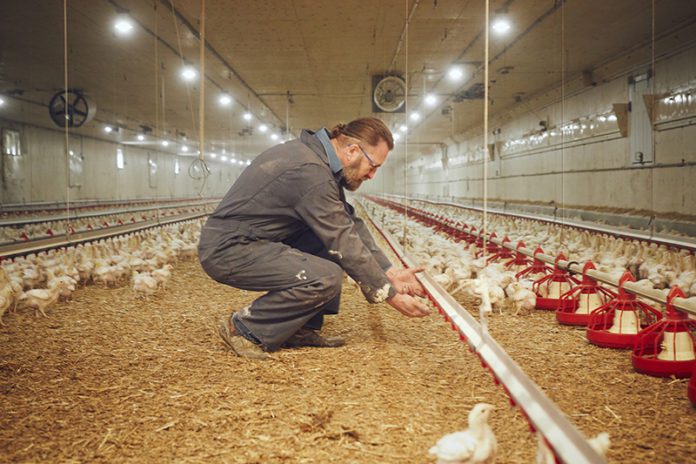Canadians’ desire to make informed decisions about the food they consume goes beyond quality to include environmental and social responsibility.
Young consumers, in particular, continue to prioritize sustainable initiatives. And, beyond what brands they support, these factors are influencing the diets of a growing number across the country.
In the midst of this, myths and misperceptions have developed involving the environmental impact and overall sustainability of chicken farming in Canada, says Christine Power, Director of Animal Care & Sustainability, Chicken Farmers of Canada (CFC).
Canadian chicken farmers take their stewardship role seriously and contribute to the sustainability of the industry through CFC’s commitment to sustainability excellence, which expands on the Raised by a Canadian Farmer Animal Care Program and On-Farm Food Safety Program.
Overall, the association’s holistic approach to sustainability is based on continual improvement and centred on four pillars, Power explains: “Protecting bird health and welfare; producing safe chicken for Canadians; preserving the health of the land and our farms; and providing value to Canada and affordable food to Canadians.”
For close to a decade, Canada’s poultry producers have implemented a comprehensive, industry-wide Antimicrobial Use Strategy incorporating surveillance, education, research and reduction. This commitment includes a series of targets for the responsible use of antibiotics, which has seen the elimination of the preventive use of Category I and Category II antibiotics (those of greatest importance to humans).
On the environmental front, CFC had a Life Cycle Assessment (LCA) conducted on the industry — an internationally recognized approach to assess the impacts associated with all of the stages of a product’s life. The results of this assessment (received in 2018) measure the industry’s progress while also providing a benchmarking tool for future improvement.
“The results from the LCA show that the Canadian chicken industry has made huge strides in improving environmental performance over the years with 37 per cent lower carbon footprint, it consumes 45-per cent less water, and it consumes 37 per cent less non-renewable energy,” shares Power. “That’s critical to ensuring we can keep producing an affordable, nutritious protein source that has minimal environmental impacts.”
The assessment also revealed that, per kilogram of protein, the carbon footprint of Canadian chicken is lower than that of other livestock commodities produced in North America. And, compared to other chicken-producing regions of the world, Canadian chicken has one of the lowest carbon footprints.
“Canadians want fresh, high-quality Canadian chicken,” says Power, “and our farmers are proud to raise it to some of the highest standards for food safety, animal care and sustainability — that’s what Raised by a Canadian Farmer means.”





















